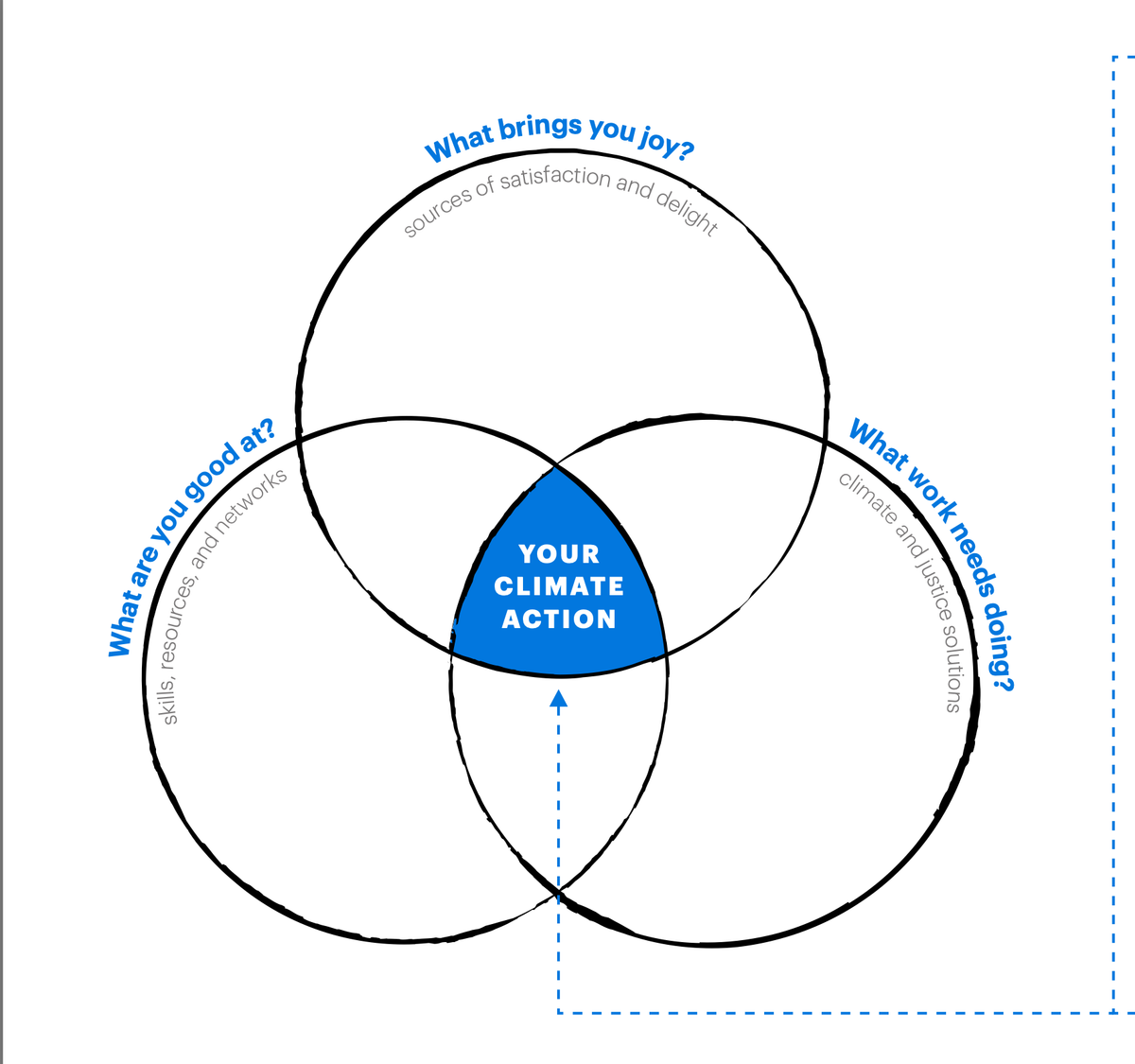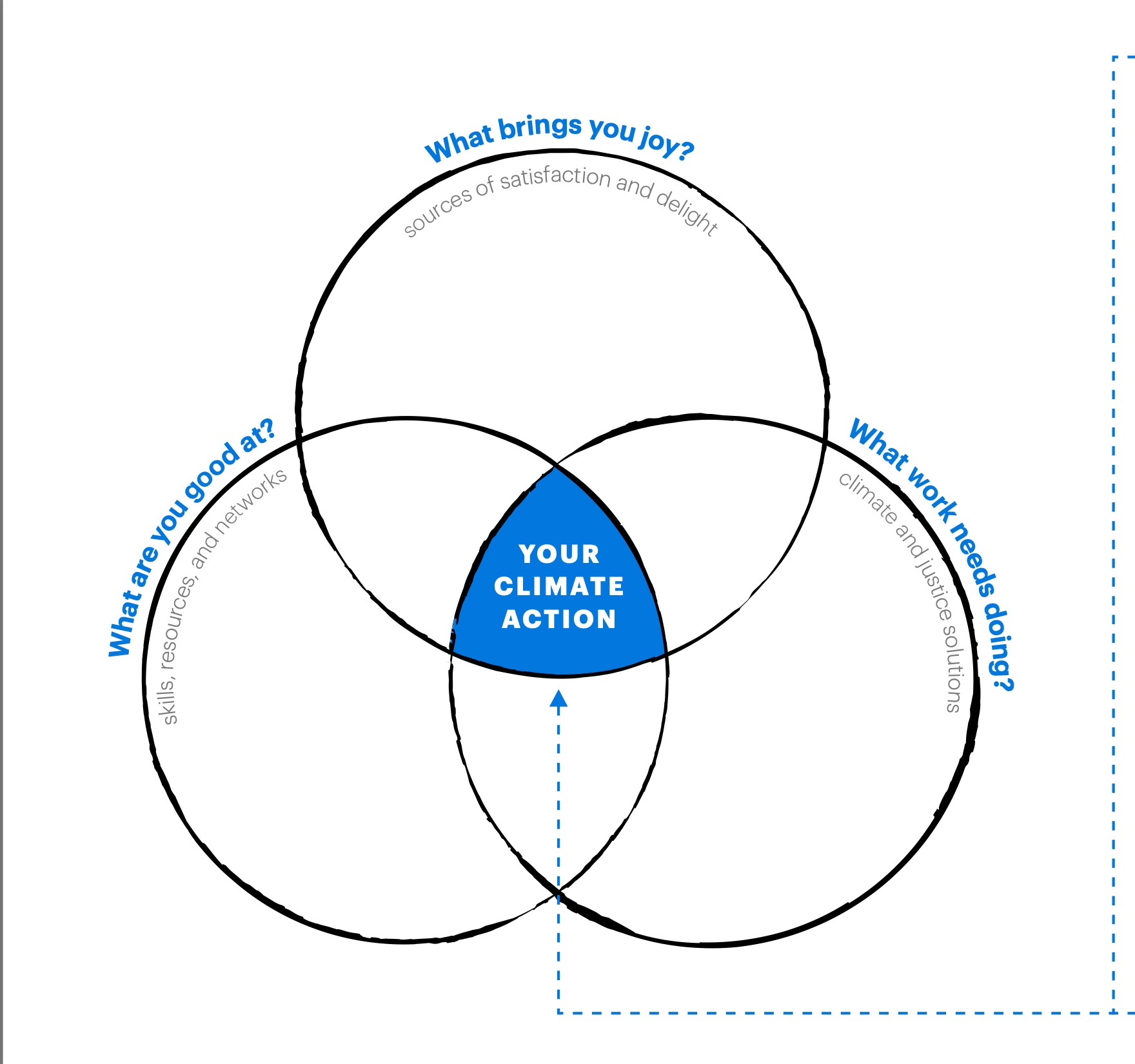Finding your niche in climate

I receive a lot of requests for informational interviews. Unfortunately, at this time in my life and career I have limited time to share with others on top of what I provide through the jobs list and my day job. For that reason, I’ve written this article to share some of what I’ve learned.
Early career advice
If you are just starting your climate career, start by identifying the climate solutions that you really care about and find a way to focus on implementing them. I’ve been approached by many people who want to work in “Sustainability.” I always follow up by asking them exactly what sustainability means to them. Sustainability means so many things to so many people, you need to drill down and specify what climate solution you care about and want to work on. It is not just a matter of semantics. I have held six jobs in my climate career, and only one of them had sustainability in the title. If you are only looking for job titles that include the word sustainability, you are missing most of the jobs. In addition, this matters for when you are talking with other people (networking) about what you want to do for work. If you say I want to work in making the wine industry more sustainable, thats very specific and I might know somebody to introduce you to. If you say, "I want to work in corporate sustainability," well, the needs of an aerospace company are different than those of an apparel company. Specifics matter.
If you don’t know what climate solution you want to work on, I strongly encourage you to read the literature on climate solutions.
- Drawdown by Paul Hawken and the associated Project Drawdown webpage are a good place to start.
- Greta Thunberg’s The Climate Book is comprehensive.
- Designing Climate Solutions by Hal Harvey runs the numbers on solutions.
- Dr. Ayanna Elizabeth Johnson’s book What If We Get It Right? is the source of the Climate Action Venn diagram below.

If you are just getting started, find a volunteer opportunity to fight for climate solutions in your community, such as housing density, bike lanes, changing HOA rules to allow solar installations, or to start a community garden or your whatever preferred climate solution is. The opportunities are out there, and if you get started, you’ll meet the community and start to learn the ropes. More importantly, you’ll have connections to help you get a job.
How to find climate organizations doing the work.
Find and read the industry publications for the field you want to join. I focus on energy, so I point to Canary Media, Heatmap.news and Utility Dive often. You can find some of these in my weekly news links. Triple Pundit is another example for those more interested in corporate sustainability. While you are reading these sites, keep an eye out for the companies and organizations that are mentioned in articles. Find their websites and check out their career pages. If it is a non-profit organization, find their “friends of” page. This might also be called affiliates, associates, or partners. This will list other aligned organizations and companies that work in the same industry or advocacy areas. Go to those organization's websites and learn about them and their career opportunities. You can even start a list or spreadsheet if you are in a full-time career search.
You can also follow influencers in these fields on social media, newsletters, or podcasts. I recommend looking to the newer sites like Bluesky over the old ones. You can also look on LinkedIn where you can follow me and the jobs list business page. I promise you that I strive to be the least annoying person on LinkedIn by limiting my posts to jobs or job reposts. No annoying LinkedIn palaver or 'thought leadership' generated primarily with AI.
On networking
A lot of people (its me, I am a lot of people) feel icky about “Networking” to find a new job. I have come to think about it this way - almost everyone that you know has, at one time or another, been looking for a job and needed help. Chances are, the person you would like to talk to has been in your position. Most people are happy to lend a hand to a young person who is trying to get started in their career, or an old colleague or a friend who wants to have coffee and talk about career changes they have made or the state of their industry.
When you conclude your networking meeting, ask if there is anyone that the person you are speaking with thinks you should talk to next. If yes, ask them to make an introduction for you two via email. People are much more likely to say yes to a networking request that comes with a warm introduction from someone that they know.
Some guidelines:
- Be respectful of their time (show up or call on time, use only the 30 minutes or an hour that you asked for, and come prepared).
- Be humble.
- Offer to buy them a cup of coffee (if you can).
- Be polite.
- Send a thank you note.
- If you are meeting in person, agree to a time and location that is convenient for the person you are speaking with.
- Reconfirm the time and date the day before the appointment.
- Bring a pen and paper. If you are in person, you don’t want to have to pick up your phone in the middle of a conversation or type notes on your laptop.
I find that one-on-one networking is more effective than large happy hours. If you don’t have a network of people in your desired industry yet, you can look for school alumni in the field, look for graduates of your program, find out if there is a professional society for the field in your area, or get involved in a volunteer role as I suggested above. You can also look for clean tech accelerators in your area (e.g. Greentown Labs in Boston and Powerhouse Ventures in Oakland), educational fellowships such as the Clean Energy Leadership Institute (targeted at more experienced individuals) and simlar organizations. If you can’t find one for your interest area, consider starting one.
Recognize that some people may, for various reasons, not be open to networking calls. Perhaps they have a baby, a new job, health issues, or other things that get in the way. Don’t take it personally.
Changing industries versus changing roles
Clean tech firms and environmental non-profits don’t just hire engineers and policy wonks. They also need communications people, lawyers, accountants, office managers, event planners, and every other function that any other organization needs. If you want to start working on climate, but already have a career in another field, you don’t have to reshape yourself into a climate solutions expert. You can take the skills you have and join a climate organization that needs the skills you have. Some skills are more transferable than others, but even fossil energy system engineers can be useful to a climate organization that needs their expertise to figure out how to use regulatory mechanisms to dismantle the fossil energy system.
Good luck!
